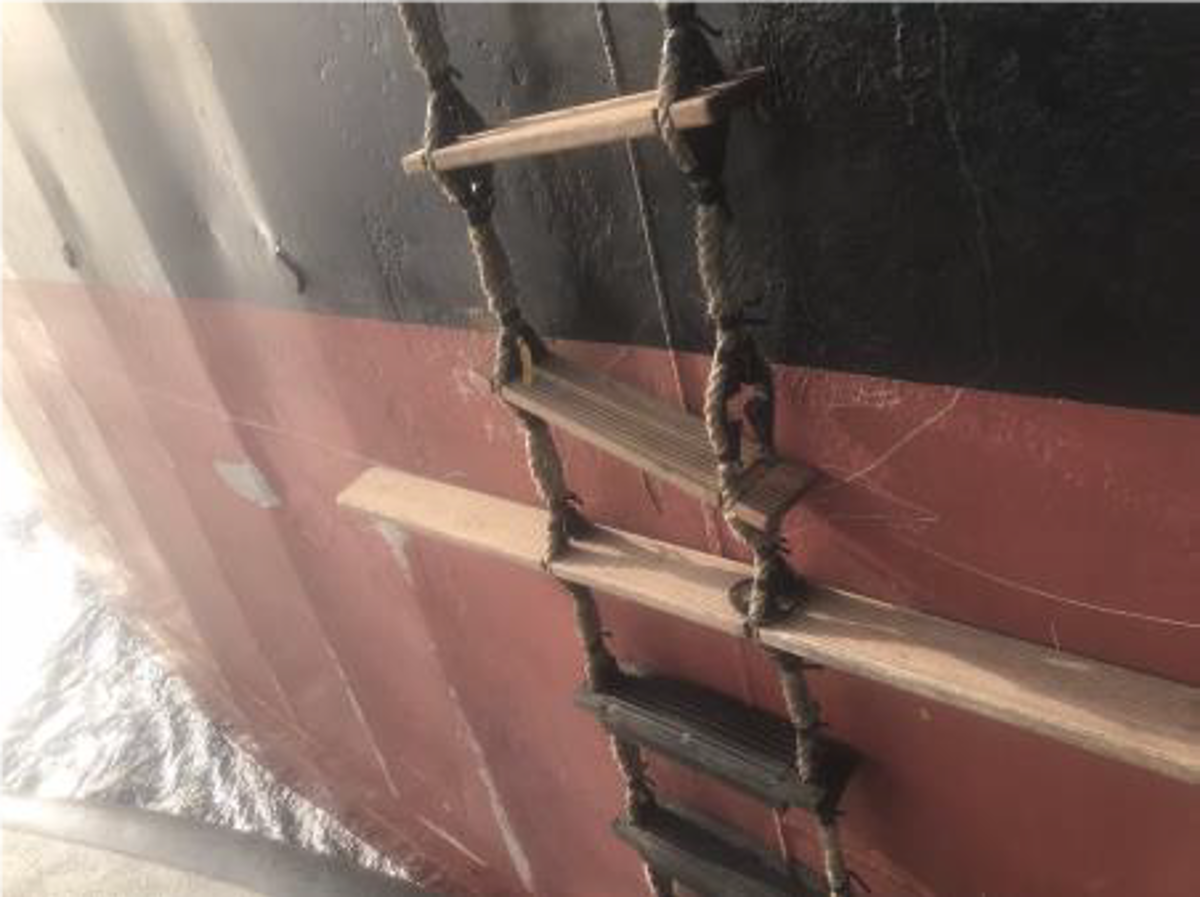Safe embarkation and disembarkation of Marine Pilots
- Safety Flash
- Published on 14 August 2020
- Generated on 29 April 2025
- IMCA SF 24/20
- 2 minute read
Jump to:
What happened?
During the embarkation of the Pilot to the vessel, the Pilot observed that a step on the pilot ladder was not in good condition (broken).
The Pilot implemented the Stop Work Policy and informed the Master of the vessel, noting that the pilot ladder would need changing before he would embark.
The pilot ladder was subsequently replaced and the pilot boarded the vessel.

What were the causes? What went wrong?
The pilot ladder was not in good condition. It had not been inspected before it was put in place by the vessel crew.
Actions
Members are reminded to ensure that:
- The technical specification of pilot ladders meets IMO requirements as per Resolution A.1045(27).
- Persons ordering or sourcing new pilot ladders should clearly know the IMO requirements and should specify to suppliers that every step on the ladder should be free of knots.
- New pilot ladders are thoroughly checked before use to verify quality and to ensure that the steps are clear from knots.
- Pilot ladders are always checked by the officer in charge before rigging and use to ensure it is fit for purpose, in good condition and secured properly to the vessel.
The following documents will be useful:
- SOLAS Regulation 23 on Pilot Transfer Arrangements
- International Chamber of Shipping (ICS) Shipping Industry Guidance on Pilot Transfer Arrangements – Ensuring Compliance with SOLAS
- IMO Resolution A.1045(27) Pilot Transfer Arrangements
Related Safety Flashes
-
IMCA SF 24/18
30 October 2018
-
-
IMCA SF 07/17
28 March 2017
-
-
IMCA SF 04/16
5 February 2016
-
IMCA SF 17/13
29 November 2013
IMCA Safety Flashes summarise key safety matters and incidents, allowing lessons to be more easily learnt for the benefit of the entire offshore industry.
The effectiveness of the IMCA Safety Flash system depends on the industry sharing information and so avoiding repeat incidents. Incidents are classified according to IOGP's Life Saving Rules.
All information is anonymised or sanitised, as appropriate, and warnings for graphic content included where possible.
IMCA makes every effort to ensure both the accuracy and reliability of the information shared, but is not be liable for any guidance and/or recommendation and/or statement herein contained.
The information contained in this document does not fulfil or replace any individual's or Member's legal, regulatory or other duties or obligations in respect of their operations. Individuals and Members remain solely responsible for the safe, lawful and proper conduct of their operations.
Share your safety incidents with IMCA online. Sign-up to receive Safety Flashes straight to your email.